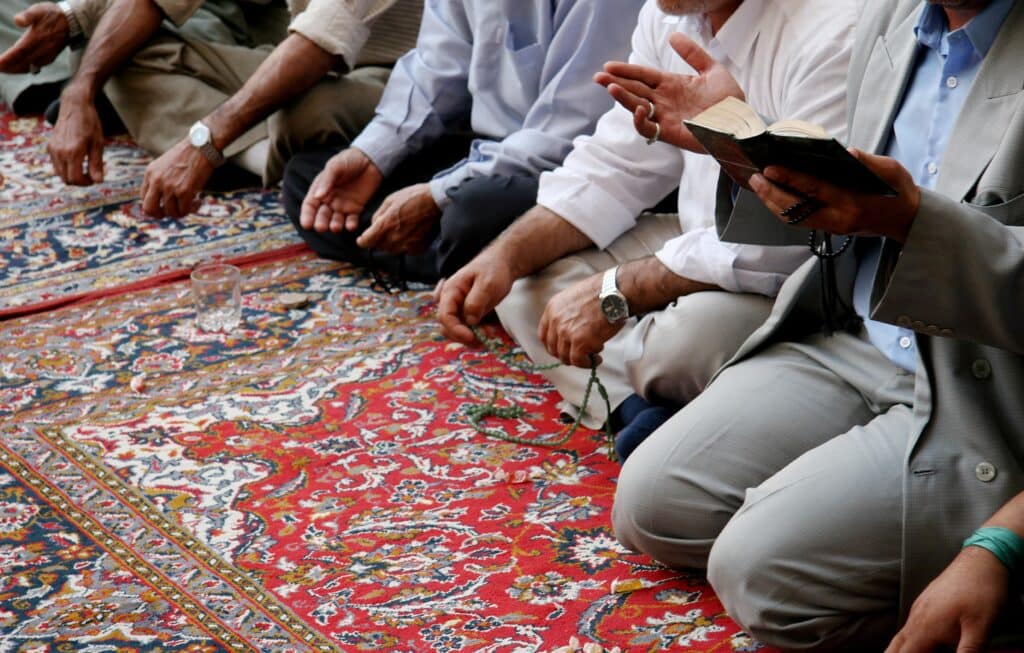Hair loss can be a painful and challenging experience for many people. In recent years, there have been tremendous advances in hair transplantation procedures. Hair transplants are a permanent solution aimed at restoring your natural hairline. The before and after pictures of this procedure show significant changes to one’s appearance. Yet, for devout Muslims, there is a question: Is hair transplant haram?
There are many differing opinions among religious scholars and authorities, whether hair transplant is permissible in Islam. Under Islamic law, the permissibility of hair transplants is still an ongoing debate, and answering the question is more complex than it seems . Some people view hair transplants as unnatural, but others perceive it as an “angel-touched” technique.
On one hand, some scholars argue that hair transplant surgeries are a form of mutilation. According to other scholars, it is a medical treatment for hair loss. Thus, hair transplant is permissible within the boundaries of Islamic teachings. Both sides of the interpretation have the potential to impact someone’s well-being.
As a result, it requires a nuanced understanding of religious interpretations. This article will look at different viewpoints and arguments for the permissibility of hair transplants.
Is Hair Transplant Haram?

There are differing interpretations of Islamic teachings and principles on hair transplants. Some scholars believe it is an unnecessary alteration of Allah’s creation. Islam instructs followers to avoid making unnecessary changes to their bodies.
The Quran states, “… The natural disposition of Allah in which He has created mankind. There is no altering Allah’s creation…” (Quran 30:30). Hair transplant surgeries contradict this principle by altering one’s natural appearance.
Islam generally prohibits it unless there is a valid medical necessity. The Prophet Muhammad (SWT) said, “Allah has cursed the woman who practices tattooing and the one who gets herself tattooed. The woman who plucks hair from her face and the one who has this done…” (Bukhari and Muslim). Some people extend this principle to unnatural bodily modifications.
Other Islamic scholars argue that hair transplants is haram. It does not introduce any artificial or foreign substances to your body. It involves the transfer of existing hair follicles from one part of the body to another. Thus, you can preserve the integrity of your natural hair and body.
Additionally, many scholars view hair loss as a medical condition. In Islam, seeking treatment for ailments is not only permissible but encouraged. The Quran states, “And when I am ill, it is He who cures me” (Quran 26:80). From this perspective, hair transplantation is a legitimate medical hair treatment for hair loss.
Free Consultation!
Benefit from Dr. Acar’s experience in hair implants to achieve your dream result!
The Permissibility of Hair Transplants from Different Perspectives

Scholarly Opinions
There is a divide among Islamic scholars about the ruling on hair transplants. Some prominent scholarly bodies have similar perspectives:
Islamic Fiqh Academy
According to the Islamic Fiqh Academy, hair transplants are halal in Islam. However, one can not use artificial or prohibited hair sources.
Al-Azhar University
The fatwa committee of Al-Azhar University stated that hair transplant is allowed in Islam. But one must use one’s existing hair.
Arguments in Favor of Hair Transplants
Proponents argue that hair transplants is haram for several reasons. The procedure transfers existing hair follicles to bald areas. It does not use artificial hair extensions or haram elements.
When performed correctly, it does not involve any prohibited practices either. Overcoming hair loss can help an individual regain their self-esteem. This sentiment aligns with Islamic values of preserving human dignity.
Arguments Against Hair Transplants
According to some Scholars, hair transplants go against preserving one’s natural form as created by Allah. A few scholars view it as an intentional marring of natural appearance. Some see it as an unnecessary modification for vanity or beauty standards.
There are concerns over the potential use of prohibited substances during the procedure. Scholars consider the artificial aspect of transplanting hair as a form of deception. Islam forbids any form of deception to hide one’s natural state.
Medical, Ethical, and Cultural Considerations

Are hair transplants haram? There are various factors beyond religious interpretations that come into play. These include medical, ethical, and cultural considerations:
Medical Factors
People with hair loss often struggle with low self-esteem and social withdrawal. Hair transplants can provide a lasting solution and improve their quality of life. The procedure is generally safe and minimally invasive.
Ethical Considerations
Some argue that hair transplants are a form of self-care and self-improvement. Therefore, we should encourage transplants as long as they do not harm others. Others say that the procedure may perpetuate unrealistic beauty standards.
Cultural Factors
Different cultural attitudes towards body modifications can influence the decision to undergo hair transplants. In certain cultures, hair holds significant symbolic and spiritual meanings. It can be a source of shame and stigma to suffer from hair loss.
Can You Get a Hair Transplant During Ramadan?

Is hair transplant haram during Ramadan? For devout Muslims, this is an important consideration. There are currently no definitive rulings on this matter.
It is imperative to fast and perform Salat during Ramadan. One can go through with the transplant if one can perform one’s duties without significant difficulties.
The decision to undergo a hair transplant is entirely personal. Yet, there are some religious factors Muslims must consider.
The answer to is a hair transplant haram in Islam is a complex one. There are many scholarly perspectives and evaluations. However, you should make an informed choice aligned with your beliefs and values.
For more information regarding hair transplants, you can visit Cosmedica’s website. They are a leading hair transplant clinic in Istanbul, Turkey. The clinic offers innovative transplant techniques with a 98% growth rate.
With over 20,000 successful surgeries, Cosmedica Clinic is a visionary in affordable hair transplant surgeries. Cosmedica Clinic has a proven track record of success, providing hope for those looking to restore their natural hairline.
